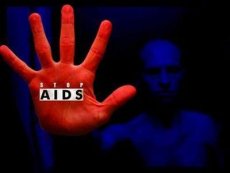New publications
New technologies will help in the fight against AIDS
Last reviewed: 01.07.2025

All iLive content is medically reviewed or fact checked to ensure as much factual accuracy as possible.
We have strict sourcing guidelines and only link to reputable media sites, academic research institutions and, whenever possible, medically peer reviewed studies. Note that the numbers in parentheses ([1], [2], etc.) are clickable links to these studies.
If you feel that any of our content is inaccurate, out-of-date, or otherwise questionable, please select it and press Ctrl + Enter.

Scientists from the University of Liverpool are carrying out a £1.65m project with the ultimate aim of producing the first nano-drug to treat HIV/AIDS.
The project, funded by the Committee on Engineering and Physical Sciences, aims to create more effective drugs with lower costs and fewer side effects for the treatment of newborns and children.
By modifying existing antiretroviral drugs (ARVs), the University recently created nanoscale ARV drug particles that could potentially reduce the toxicity of the drugs as well as reduce the risk of the virus becoming “addicted” to the drugs given to patients.
"This project is the first step towards using nanomedicine to treat HIV/AIDS. It was developed in our laboratories as well as in a clinical setting and is an important milestone in the development of new treatments for HIV infection," said Professor Steve Rannard, from the University of Liverpool's Department of Chemistry.
“If we can demonstrate the true potential of the project in clinical work with healthy volunteers at the Royal Liverpool University Hospital, then our partner, IOTA NanoSolutions, will continue to further improve the method and test it clinically in HIV-infected patients. We also want to make our new formula available to children in developing countries. Our goal is to offer the world a safer and more effective treatment for HIV infection.”
“Our database so far is impressive and could potentially help reduce the doses of drugs needed to control HIV,” adds Professor Andrew Owen, from the Department of Molecular and Clinical Pharmacology at the University of Liverpool. “This project builds on the initiative of Doctors Without Borders and other groups who are looking at ways to improve antiretroviral drugs and ensure they are safe. We also want to reduce the cost of HIV/AIDS treatment in resource-poor countries where the disease is most prevalent.” The new nanomedicine developed by the scientists can be diluted in water, making it much easier to treat young children, especially newborns. The scientists’ development could give hope to 3.4 million children under the age of 15 in Central Africa. About 90% of HIV-infected children in the region acquire the virus from their mothers. Without treatment, a third of them die within the first year of life.

 [
[